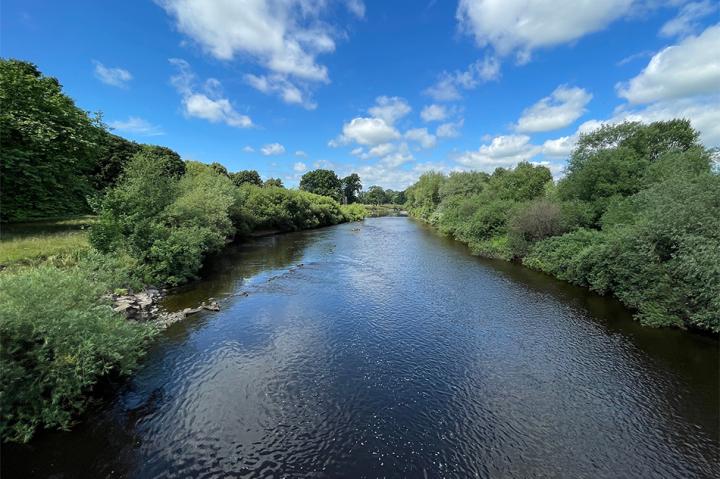Nutrient neutrality: A further landowner opportunity

Like rivers, landowners are on a continuous journey, having to take different courses, gain momentum, and overcome various obstacles to reach new territories. However, with concerns about nitrates and phosphates in certain river catchments rising, how can landowners mitigate the problem and continue to move forward with their plans?
We discuss how the Government’s nutrient neutrality scheme aims to offset potential harm and presents a new opportunity for landowners.
Concern about nitrates and phosphates
Worries have been raised about certain river catchments throughout the country, due to the amount of nitrates and phosphates running into watercourses, especially where significant development could exacerbate the problem. In the North East and North West, the rivers currently affected are the River Tees, the River Derwent (including Bassenthwaite Lake) and the River Eden.
These rivers are vulnerable for different reasons, but the solution to the problem is the same: find a way to ensure that the amounts of nitrogen and phosphorus entering the river system as a whole don't increase. As it’s always necessary to carry out some development, it's crucial to ensure a reduction in those inputs elsewhere.
What is nutrient neutrality?
‘Nutrient neutrality’ is the Government's scheme aiming to mitigate the effects of development, and work with landowners to reduce run-off from fertilisers. Unlike biodiversity net gain (BNG), the situation must be tackled within the same river catchment area to ensure that the harm is being offset where it’s caused.
While there can be with BNG, there is no similar natural national credit bank for nutrient neutrality. However, progress is ongoing with Natural England to create credits within relevant areas that they can then sell. There will, however, always be a market for private offset between landowners to take place within the locality.
Landowner options
Landowners can get involved with Natural England via their calls for sites, which are issued periodically in the relevant localities. However, it's not guaranteed that the site will be accepted, and there is a complex method to determine the most appropriate sites. If accepted, a contract with Natural England, which is both a regulator and a responsible body that can enter into the contract, can be something of a one-stop shop for exacting a one-off cash payment.
Entering into private agreements with developers would be a more flexible alternative, with the potential to command higher individual unit returns and spread income over a period of time.
We've seen developers enter into these on an optional basis to be able to draw them down as necessary, and on an unconditional basis with sites going through the planning process that are now also required to satisfy nutrient neutrality.
Seeking specialist support
Either way, these agreements work by landowners agreeing to remove some inputs from the system, thereby reducing the amounts of nitrates and phosphates running into the rivers. This creates a credit, which the developer will use to offset the calculated increases that their development will cause on a one-for-one basis.
Typically, the agreements to take the land out of production and not apply fertilisers will last for 90 years. In this way, it’s more of a discontinuation of activities rather than an active change, unlike BNG. That said, doing both on the same site is possible, a process referred to as stacking or bundling. The unit measurement metric is quite different, however, and it’s important to seek advice from an ecologist about what might be best for a landowner's particular site to maximise the potential benefits of one site.
We are connected with various specialists in this area and can support landowners with all legal advice regarding the interplay of different contracts on the same parcel of land, or the different opportunities that might be possible.
For more information on Natural Capital, contact Richard Nixon on 0191 2117840 or [email protected].
